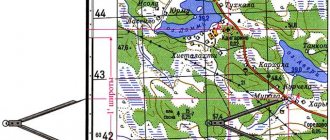The Constitutional Court of the Russian Federation has put an end to disputes about freedom of movement during a pandemic
Photo: Alexander Avilov/AGN Moscow Authorities of Russian regions have the right to make decisions to restrict the movement of citizens during a pandemic, since these measures are forced. This is stated in the latest ruling of the Constitutional Court of the Russian Federation. The reason for considering the case was a request from the Protvinsky City Court of the Moscow Region.
In April of this year, a 52-year-old resident of the city of Protvino was detained on the street for violating the decree of Moscow Region Governor Andrei Vorobyov on restrictions due to the COVID-19 pandemic. The police drew up a report under Art. 20.6.1 Code of Administrative Offenses of the Russian Federation (failure to comply with the rules of conduct in case of an emergency or the threat of its occurrence). The materials were transferred to the Protvinsky City Court. In August, he suspended the proceedings in the case and sought clarification from the Constitutional Court of the Russian Federation.
The applicant believed that the resolution was issued by Vorobyov in excess of his authority and limited the constitutional right of citizens to freedom of movement.
The Constitutional Court noted that the restriction of freedom of movement established by the decree of the head of the region is of an exceptional nature, aims to protect the life and health of citizens and is proportionate. Certain bans were due to the need to quickly respond to the “unprecedented threat” of the spread of coronavirus, and such decisions pursued “constitutionally enshrined goals of protecting the life and health of all persons,” primarily the Russians themselves, who found themselves in temporary isolation.
In addition, the Constitutional Court emphasized, there were exceptions to the rules. Thus, people still had the opportunity to leave their homes to get emergency medical care, go to work, or go to the nearest store.
“These exceptions do not contain signs of social or other discrimination and are based on a rational understanding of the objective vital needs of citizens and society, which also indicates their constitutional and legal admissibility,” the resolution states.
According to the Constitutional Court, the restrictions were temporary and did not have the nature of an absolute ban, provided that citizens had valid reasons for movement. “The possibility of their establishment received timely confirmation in federal legislation,” the Constitutional Court said. The court also noted that this conclusion should be applied to similar provisions of regulations in other regions of the Russian Federation.
At the same time, the exceptions to the general ban on leaving places of residence specified in the documents cannot be considered as exhaustive. When considering administrative cases, law enforcement agencies should not limit themselves to a formal statement of the fact of violation of movement rules. The Constitutional Court noted that the valid circumstances that caused the offense must also be taken into account.
As a result, the Constitutional Court recognized the disputed clause of the resolution of the governor of the Moscow region as not contradicting the Constitution of the Russian Federation.
“The establishment of this provision, according to its constitutionally significant purpose and essence, was dictated by the objective need for a rapid response to the extraordinary (unprecedented) danger of the spread of coronavirus infection (COVID-2019), the measures it introduced were not of the nature of an absolute ban, allowing for the possibility of movement of citizens in the presence of extenuating circumstances, were short-term, and the possibility of their establishment received timely confirmation in federal legislation,” the Constitutional Court of the Russian Federation indicated.
Law of the Russian Federation of June 25, 1993 No. 5242-1
Registration of a citizen of the Russian Federation at the place of residence is carried out within a period not exceeding 90 days from the date of arrival of the citizen in the residential premises. Registration at the place of residence is carried out without removing the citizen from registration at the place of residence.
(Part as amended, entered into force on January 11, 2015 by Federal Law of December 31, 2014 No. 525-FZ. - See previous edition.)
A citizen of the Russian Federation has the right not to register at the place of residence in a residential premises if the residential premises in which he is registered at the place of residence is located in the same or another populated area of the same subject of the Russian Federation.
A citizen of the Russian Federation has the right not to register at the place of residence in a residential premises located in the federal city of Moscow or in one of the populated areas of the Moscow region, if he is registered at the place of residence in a residential premises located in the federal city of Moscow or in one of the populated areas Moscow region.
A citizen of the Russian Federation has the right not to register at the place of residence in a residential premises located in the federal city of St. Petersburg or in one of the settlements of the Leningrad Region, if he is registered at the place of residence in a residential premises located in the federal city of St. Petersburg or in one of the settlements of the Leningrad region.
A citizen of the Russian Federation has the right not to register at the place of residence in a residential premises located in the federal city of Sevastopol or in one of the populated areas of the Republic of Crimea, if he is registered at the place of residence in a residential premises located in the federal city of Sevastopol or in one of the populated areas Republic of Crimea.
(Part additionally included from April 4, 2021 by Federal Law of April 3, 2021 No. 65-FZ)
Parts five to fourteen of the previous edition from April 4, 2017 are considered respectively parts six to fifteen of this edition - Federal Law of April 3, 2021 No. 65-FZ.
The registration authority is obliged to register a citizen of the Russian Federation at the place of residence no later than three working days from the date of receipt from the citizen or from the person responsible for receiving and transferring to the registration authority documents for registration and deregistration of citizens of the Russian Federation at the place of residence and at the place of residence within the Russian Federation, an application for registration at the place of residence in the prescribed form and other documents required for such registration, and no later than eight working days from the date the citizen submits an application for registration at the place of residence and other documents necessary for such registration , in the form of electronic documents.
Registration of a citizen of the Russian Federation at the place of stay and deregistration of a citizen of the Russian Federation at the place of stay in a hotel, sanatorium, rest home, boarding house, campsite, tourist base, medical organization or other similar institution, institution of the penal system executing punishments in the form of imprisonment or forced labor, are carried out accordingly upon his arrival and departure by the Administration of the relevant institution, unless otherwise provided by this article.
(Part as amended, entered into force on July 30, 2015 by Federal Law of June 29, 2015 No. 197-FZ. - See previous edition.)
Part lost force on January 11, 2015 - Federal Law of December 31, 2014 No. 525-FZ. – See previous edition.
In other cases, registration of a citizen of the Russian Federation at the place of stay and deregistration of a citizen of the Russian Federation at the place of stay are carried out by the registration authority in accordance with the rules for registration and deregistration of citizens of the Russian Federation at the place of stay and at the place of residence within the Russian Federation.
If the fact of fictitious registration of a citizen of the Russian Federation at the place of stay in a residential building is revealed, this citizen is removed from the registration register at the place of stay on the basis of a decision of the registration body in the manner established by the federal executive body in the field of internal affairs.
(Part as amended, entered into force on January 8, 2021 by Federal Law of December 27, 2021 No. 528-FZ. - See previous edition.)
The administrations of the institutions specified in part seven of this article, with the exception of institutions of the penitentiary system that execute punishments in the form of imprisonment or forced labor, provide registration information free of charge within 24 hours or send using the means of communication included in the telecommunication network. and deregistration of citizens of the Russian Federation at their place of residence by the territorial bodies of the federal executive body in the field of internal affairs in the manner established by the federal executive body in the field of internal affairs. Administrations of penal system institutions executing sentences in the form of imprisonment or forced labor provide this information within seven working days.
(Part additionally included on January 10, 2014 by Federal Law of December 28, 2013 No. 387-FZ; as amended by Federal Law of December 31, 2014 No. 525-FZ; as amended by Federal Law of December 31, 2014 No. 525-FZ; as amended by from January 8, 2019 by Federal Law of December 27, 2021 No. 528-FZ. – See previous edition.)
The administration of the organization or institution specified in part seven of this article, with the exception of the institution of the penal system executing punishments in the form of imprisonment or forced labor, does not submit information on the registration and removal of a citizen of the Russian Federation to the territorial body of the federal executive body in the field of internal affairs. Federation from registration at the place of residence and has the right not to register a given citizen at the place of stay in the specified organization or institution if the citizen is registered at the place of residence or at the place of stay in a residential building located in the same subject of the Russian Federation as the specified organization or institution.
(Part was additionally included from July 30, 2015 by Federal Law of June 29, 2015 No. 197-FZ; as amended, entered into force on January 8, 2021 by Federal Law of December 27, 2018 No. 528-FZ. - See previous edition. )
The administration of the organization or institution specified in part seven of this article and located in the federal city of Moscow or in one of the settlements of the Moscow region, with the exception of an institution of the penal system executing punishments in the form of imprisonment or forced labor, does not submit to the territorial body federal executive body in the field of internal affairs information on the registration and deregistration of a citizen of the Russian Federation at the place of residence and has the right not to register this citizen at the place of stay in the specified organization or institution if this citizen is registered at the place of residence or at the place of stay in a residential premises located in the federal city of Moscow or in one of the settlements of the Moscow region.
(Part was additionally included from July 30, 2015 by Federal Law of June 29, 2015 No. 197-FZ; as amended, entered into force on January 8, 2021 by Federal Law of December 27, 2018 No. 528-FZ. - See previous edition. )
The administration of the organization or institution specified in part seven of this article and located in the federal city of St. Petersburg or in one of the settlements of the Leningrad region, with the exception of an institution of the penal system executing punishments in the form of imprisonment or forced labor, does not represent territorial body of the federal executive body in the field of internal affairs information on the registration and deregistration of a citizen of the Russian Federation at the place of residence and has the right not to register this citizen at the place of stay in the specified organization or institution if this citizen is registered at the place of residence or at place of stay in a residential building located in the federal city of St. Petersburg or in one of the settlements of the Leningrad region.
(Part was additionally included from July 30, 2015 by Federal Law of June 29, 2015 No. 197-FZ; as amended, entered into force on January 8, 2021 by Federal Law of December 27, 2018 No. 528-FZ. - See previous edition. )
The grounds for exemption from the obligation to register a citizen of the Russian Federation at the place of stay, provided for in parts twelve to fourteen of this article, apply if the continuous period of stay of this citizen in the relevant place of stay does not exceed 90 days from the date of his arrival at this place of stay.
(Part was additionally included from July 30, 2015 by Federal Law of June 29, 2015 No. 197-FZ; as amended, entered into force on January 8, 2021 by Federal Law of December 27, 2018 No. 528-FZ. - See previous edition. )
(Article as amended, entered into force on January 3, 2014 by Federal Law of December 21, 2013 No. 376-FZ. - See previous edition.)







